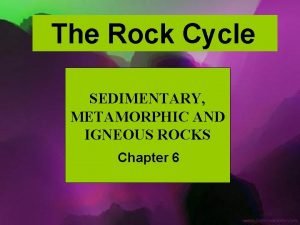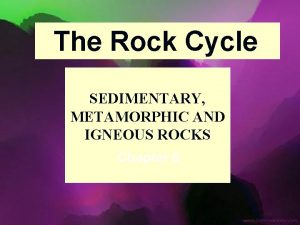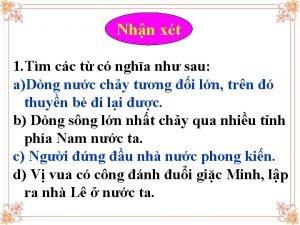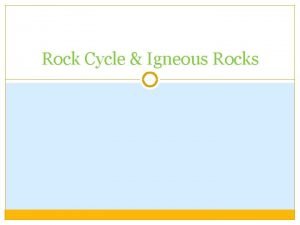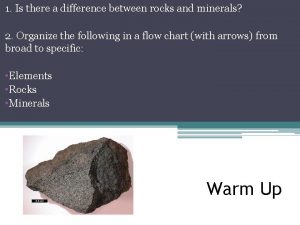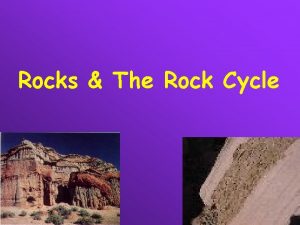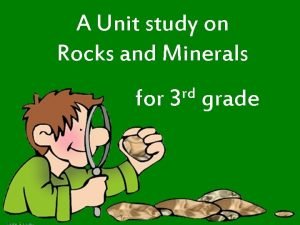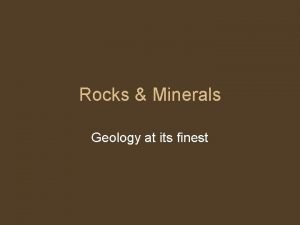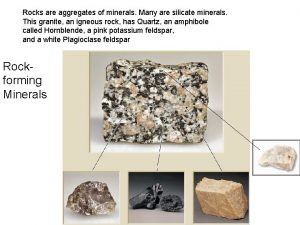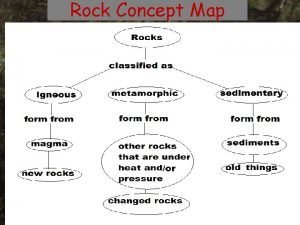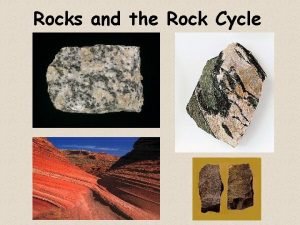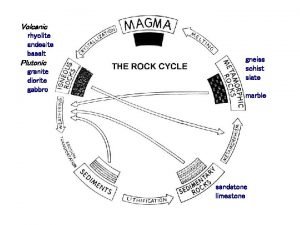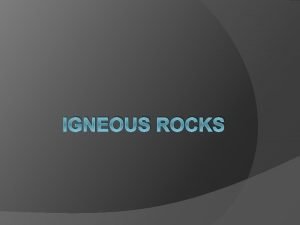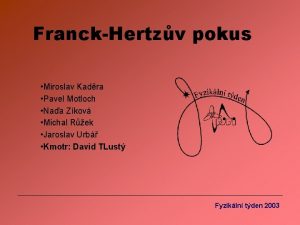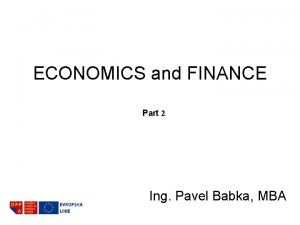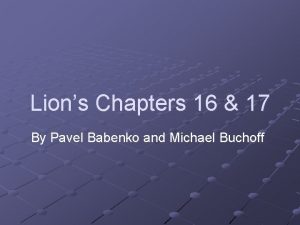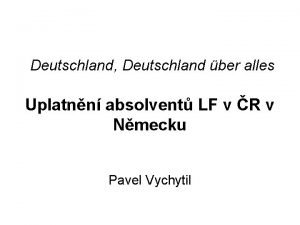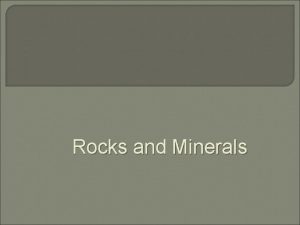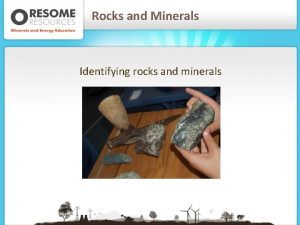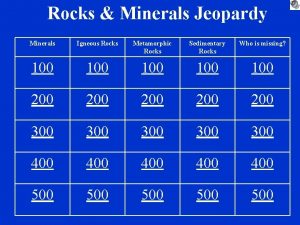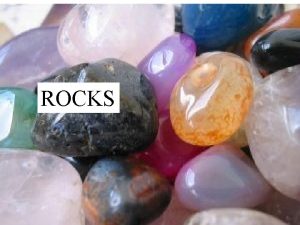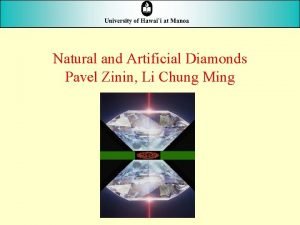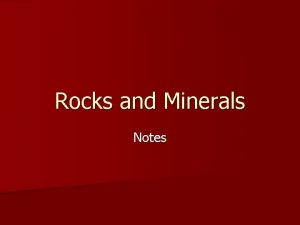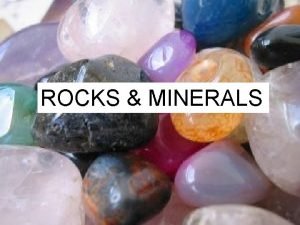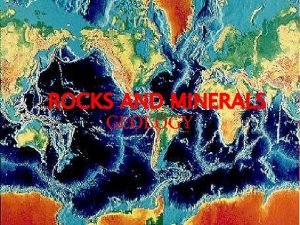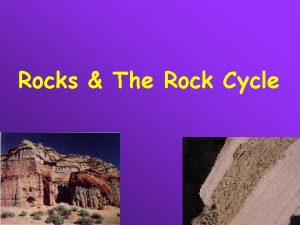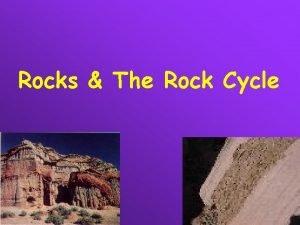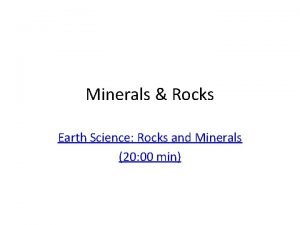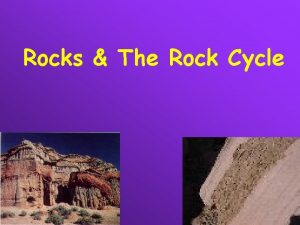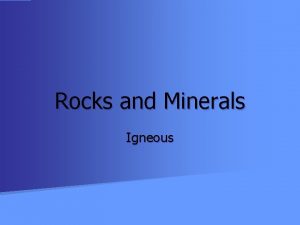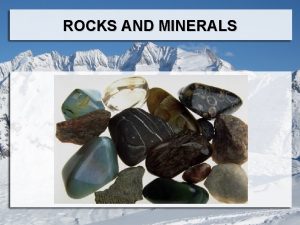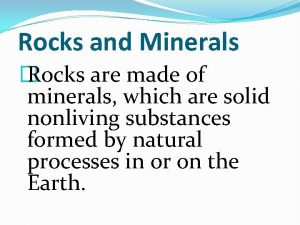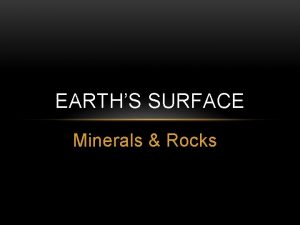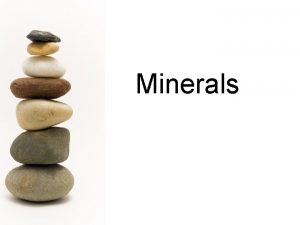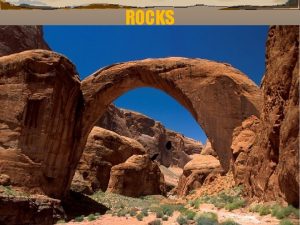Amazing Minerals Li Chung Ming Pavel Zinin Rocks





























- Slides: 29

Amazing Minerals Li Chung Ming, Pavel Zinin Rocks & Minerals Ruth Jia & Tayro Acousta

Minerals are ……. the chemicals that make up the rocks

4 important elements for a mineral Naturally-occurring Inorganic Solid Fixed Chemical Composition Crystalline

Is diamond a mineral?

Yes, diamond is a mineral It has been found in many different parts of the earth as shown below

Many diamonds were found in the kimberlite pipe, Kimberley, South Africa

Diamond is crystalline with a fixed chemical composition -- carbon (C) A single crystal with a well-developed external form The unit cell of diamond structure showing how carbon atoms inside arranged.

Do you know how many minerals have been found so far ?

There about 3000 known minerals so far. Only 200 of them are commonly observed. 20 of them are important rockforming minerals.

7 Amazing Minerals

1. Diamond

The hardest mineral on earth “Diamond is forever”

2. Quartz

The most abundant mineral on the earth’s surface -- quartz (rock crystal) Si. O 2

The mineral we eat daily –table salt Na. Cl (halite) Na+1 The mineral halite has a typical ionic bonding between Na+1 and Cl-1 The unit cell is face-center cubic Cl-1

3. Mica

The mineral that looks like a stack of papers mica – a sheet silicate

4. Magnetite

The mineral that attracts iron metals magnetite – an iron oxide (Fe 3 O 4)

5. Pyrite

The yellow mineral that fools many people as gold pyrite (Fe. S 2 ) The cubic crystal of pyrite Crystal structure – a face-center cubic

Interesting features of pyrite, Fe. S 2 Clear striations on the surface The black color for pyrite powder The simplest way to produce powder from minerals is to scratch a sharp edge of a specimen against a rough & hard ceramic plate. You may try a pyrite specimen on the table to see if it is correct.

6. Ice

The mineral that floats on water Ice – the solid form of water, H 2 O

7. Olivine

A green mineral called Hawaii diamond Olivine – a silicate, (Fe, Mg)2 Si. O 4

Interesting facts about the olivine mineral olivine crystals in the basalt It is the first mineral crystallized out from the molten magma. Puu Mahana, Green Sand Beach, Hawaii It is the major component for the green sand.

The most abundant mineral in the earth’s upper mantle (below the crust and above 410 km depth)

The End Thank you for coming Mahalo
 Sedimentary rocks turn into metamorphic
Sedimentary rocks turn into metamorphic Igneous rocks metamorphic rocks and sedimentary rocks
Igneous rocks metamorphic rocks and sedimentary rocks Dr ming liu
Dr ming liu Chúng tôi đứng trên núi chung
Chúng tôi đứng trên núi chung Solid rock
Solid rock Difference between rock and stone
Difference between rock and stone Quartzite rock cycle
Quartzite rock cycle Difference between rocks and minerals
Difference between rocks and minerals Rock type
Rock type Rocks are aggregates of minerals
Rocks are aggregates of minerals Concept map of metamorphic rock
Concept map of metamorphic rock Types of rocks song
Types of rocks song Suzanna socked me sunday poem
Suzanna socked me sunday poem Granite and rhyolite
Granite and rhyolite How is intrusive igneous rock formed
How is intrusive igneous rock formed Pavel motloch
Pavel motloch Pavel machala
Pavel machala Pavel babka
Pavel babka Pavel theiner
Pavel theiner Pavel rozsypal
Pavel rozsypal Pavel pudlak
Pavel pudlak Misha pavel
Misha pavel The butterfly poem by pavel friedmann
The butterfly poem by pavel friedmann Pavel buividovich
Pavel buividovich Pavel babenko
Pavel babenko Pavel sonnenschein
Pavel sonnenschein Pavel pablo gregorić
Pavel pablo gregorić Ota pavel prezentace
Ota pavel prezentace Pavel vychytil
Pavel vychytil Pavel popp
Pavel popp
